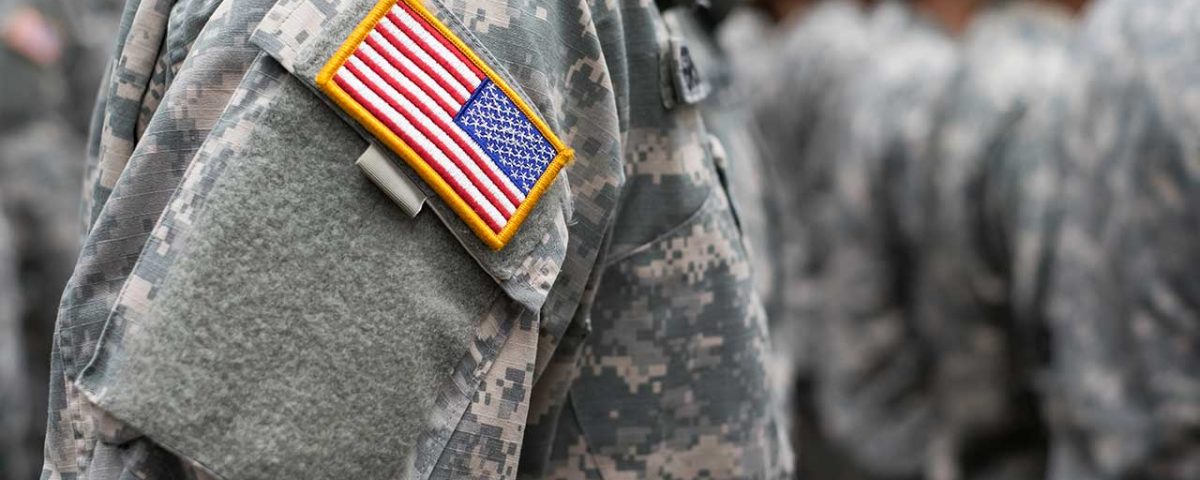An eating disorder is not subjected to a specific demographic or group. No matter their age, gender, or status, anyone can fall victim to the disease, including members of the military. With constant training and consistent weigh-ins, the pressure of the military can result in poor eating habits or even dangerous disordered eating. Although mental health is correlated as the cause of eating disorders in many circumstances, eating disorders in the military are not as recognized or vocalized. Banyan Veterans in Recovery is breaking down the importance of treatment in these cases.
Causes of Eating Disorders in the Military
How and why an eating disorder develops is a deeply personal experience. A person’s gender, upbringing, and background can all play a part. Regarding soldiers and veterans, factors like military weight requirements and unaddressed mental illness can lead a person down a potentially self-destructive path.
Strict Weight Standards
In the United States Military, there are weight mandates that are based on a service member’s gender, age, and height. Although there are safe ways to reach these specified targets, many service members strive to meet the standards of the physical readiness test, which begins to alter their daily lives. In order to achieve specific weight requirements, service members resort to restrictive eating, self-induced vomiting, or even binge eating.
It can be difficult trying to notice the signs of an eating disorder just by looking at the individual. The soldier can look physically fit and meet the physical readiness test while still suffering from an eating disorder.
Mental Illness
Mental health in the military is a topic that has grown in infamy throughout our nation’s history. From the shell-shocked soldiers of World War I to the horrific tales relayed by Vietnam veterans, these individuals have experienced countless traumas. Connections have been made between the existence of eating disorders and endured trauma. Post-traumatic stress disorder (PTSD) is a mental disorder that occurs when an individual is suffering from a traumatic event.
PTSD, as well as other mental illnesses such as anxiety (which is very common with eating disorder cases), can all put a soldier at risk. Service members can use disordered eating as an escape from the trauma that they are suffering from, with some even doing it for the sense of control that they may be yearning for.
The Dangers of Eating Disorders
Not only are these conditions a sign that a person is struggling internally, but they can have a serious effect on their physical health as well.
Depending on the disorder in question, sufferers can experience symptoms such as:
- Brittle nails and hair
- Drop in blood pressure
- Thyroid dysfunction
- Lowered body temperature
- Weakened bones due to lack of calcium
- Heart failure
The prevalence of military eating disorders in a field reliant on the well-being of its soldiers should be a major cause for alarm. As understanding of this topic continues to develop, more must be done to address the struggles of those who have been impacted.
Eating Disorder Treatment in the Military
Despite the rise in attention to eating disorders for all genders, usually, medical providers in the military are not trained to notice the signs of disordered eating among service members. Due to the lack of treatment options and continued focus on strenuous fitness plans and weight goals, many service members suffer in silence.
There are a number of other reasons that servicemen and women with eating disorders will go undiagnosed. One is the stigma behind the condition. Eating disorders in the military are considered by many to be a sign of weakness or helplessness. Because of this, it makes it difficult for an individual to seek or ask for help. If one actually builds up the courage to express their problem, it then becomes a process of accessing treatment.
Service members and their families may find it difficult to find treatment for an eating disorder, with some reasons for this including insurance stipulations or even fear of getting discharged. The team at Banyan’s rehab for veterans makes it their mission to understand and personalize treatment plans based on the specific needs of current and former military service members. We are also proud to offer our Nourish in Recovery program, which seeks to provide the best treatment possible for those struggling with disordered eating.
If you or a loved one is struggling with an eating disorder, mental illness, or addiction, contact the Banyan military rehab center today at 888-280-4763 and learn more about the many programs we offer.
Related Reading:








